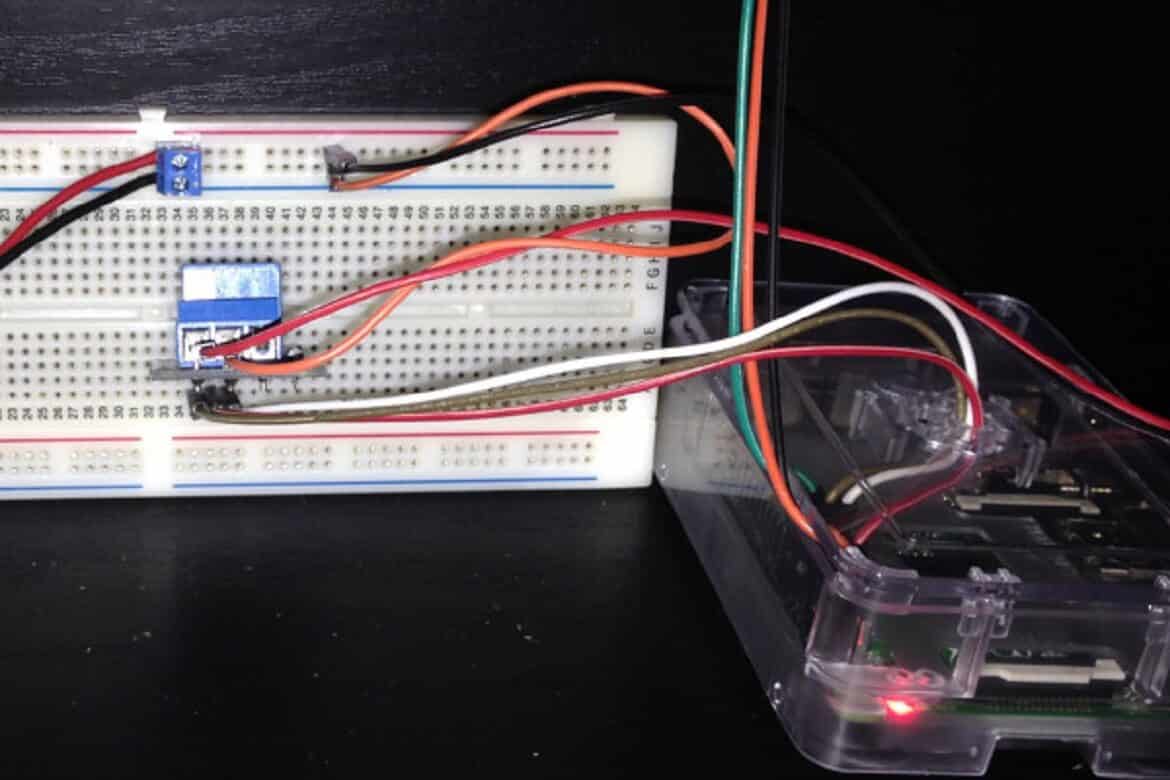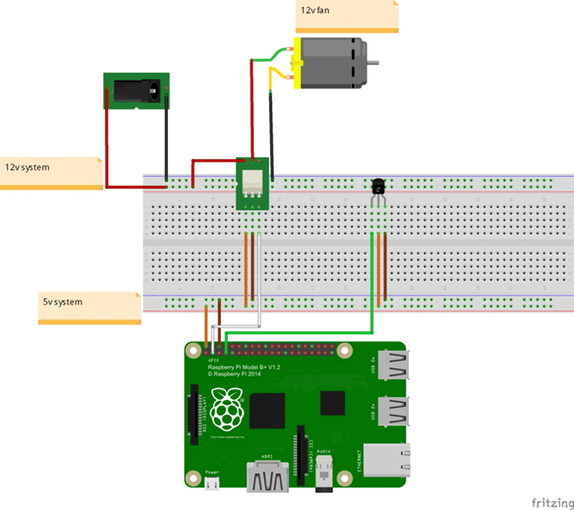Build a Temperature Controlled Fan

What is the one thing that bothers most desktop or laptop owners? Overheating is definitely on the list. To solve this problem, most of them will buy devices that can help to regularly release the heat or cool the computer down. However, many of these products are not really effective, so why don’t you try to design a solution for yourself? This is exactly what a fellow maker comes up with, so let us now learn about how he achieves it.
A DIY temperature controlled fan
The temperature controlled fan, designed by Andreas Johansson, is inspired by a personal finding that the furniture where he places his media related devices are often overheated while he is using them. As a result, he wants to build a solution of his own, and he decides to design a temperature-controlled fan. The fan is based on Raspberry Pi 1 and 5V relay module. The system itself is broken down into 2 sub-circuits: 5V and 12V.
He connects the 5V relay to Raspberry Pi 1 in order to control the higher voltage system that is connected to the fan itself. The temperature controlled feature lies in the combination of Raspberry Pi and the embedded temperature sensor. Johansson places the sensor inside the media furniture so it can accurately detect the current temperature in the environment. The sensor then will timely send the data back to Raspberry Pi and it will also activate the high voltage circuit when the temperature is too high.
To give you a better understanding of the fan’s layout, Johansson has prepared the image below for interested makers:

Interested in learning more about the project’s detail? You can check out its complete profile on hackster.io. But if you are looking for a similar solution that is readily available, you can also check out the fan controller solution from Nuvoton Technology, which we wrote about few months ago. As always, we hope you find this solution interesting and useful, but if you have any suggestion, please don’t hesitate to leave them in the comments. We will bring you more maker projects in the coming weeks, so stay tuned.









